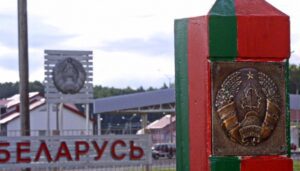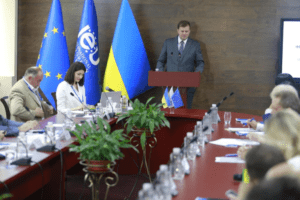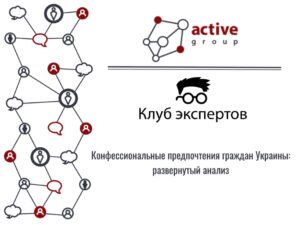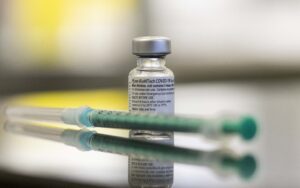
Federal Minister of Finance of the Federal Republic of Germany Olaf Scholz said that Germany will seek the extension of the agreement on gas transit through Ukraine.
“We work very hard to make sure that the gas transit agreement between Ukraine and Russia is prolonged,” Scholz said in an interview with Bloomberg on Friday.
According to the position of Germany, the Nord Stream 2 gas pipeline, which runs along the bottom of the Baltic Sea, should be finished, but gas transit through Ukraine should be preserved.
According to Scholz, Germany sees its responsibility to ensure transit through Ukraine in the future, and not only for two or three years, but for decades to come.
The current agreement, according to Government Spokesperson Steffen Seibert, is valid until at least 2024, but the agreement implies that the parties will check the possibility of extending the agreement until 2034.

President of Belarus Alexander Lukashenko, whom the U.S. and EU do not recognize as legally elected, instructed the border troops to completely close the border with Ukraine.
He said this on Friday at a solemn meeting to mark the Independence Day, the BelTA state news agency reports.
“A huge amount of weapons is coming from Ukraine to Belarus. Therefore, I instructed the border troops to completely close the border with Ukraine,” Lukashenko said.
He said that terrorist “sleeper” cells, the so-called self-defense formations, had been detected in Belarus.
“Terrorist sleeper cells, so-called self-defense formations have been detected today. These cells intend to overthrow the government at a specified date. They don’t know what date yet: our nation has yet to accept it,” Lukashenko said.
According to him, Germany, Ukraine, the United States, Poland and Lithuania are involved in this.

The Verkhovna Rada of Ukraine has canceled the Crimea free economic area, which was introduced by law in August 2014.
The adoption of relevant bill No. 5502-d on recognizing as invalid the law of Ukraine on the creation of a free economic area “Crimea” and on the specifics of performing economic activities in the temporarily occupied territory of Ukraine and on amending some legislative acts of Ukraine was supported by 328 MPs.
“Taking into account the circumstances that operated in 2014, the law, in fact, introduced preferential conditions for the continuation of economic activities in the temporarily occupied territory. At the same time, the law regulated the implementation of the rights of Ukrainian citizens who remained to live in the temporarily occupied territory and introduced additional restrictions (in particular, customs), in the tax legislation such citizens were equated to non-residents,” the government said in the explanatory note.
The authors of the bill said that such restrictions have led to discrimination against citizens of Ukraine who have remained to live in the temporarily occupied territory or are registered in this territory.
In particular, the status of non-residents led to restrictions on access to banking services in the territory controlled by Ukraine. International and national human rights organizations have repeatedly stated about the negative consequences of the law for the observance of human rights and freedoms.
In addition, bill No. 5502-d proposes to regulate the procedure for persons entering and leaving the temporarily occupied territory, securing the right to free secondary legal aid for Ukrainian citizens living in the temporarily occupied territory and ensuring the implementation of the right to inheritance for such persons.
The Verkhovna Rada at an extraordinary meeting on Thursday also supported bill No. 5501, which amends the Tax Code regarding the administration of taxes and fees in the temporarily occupied territory of the Autonomous Republic of Crimea and the city of Sevastopol, and bill No. 5503 on amendments to the Customs Code in connection with the adoption of the law on the abolition of the Crimea free economic area.
CRIMEA, FREE ECONOMIC AREA, PARLIAMENT, UKRAINIAN PARLIAMENT

International European University held an international scientific conference: ‘25th Anniversary of the Constitution of Ukraine: National Tradition and European Standards of Constitutionalism’, involving honored guests, public officials, students, Ph.D. students, young scientists, lawyers and political strategists.
Due to the global epidemiological situation, International European University developed the plan of actions and took care of all participants. At the entrance of the university, our partners, medical professionals from New diagnostics laboratory, carried out PCR testing and provided participants with face masks.

The conference was opened by Alla Navolokina, a co-founder and vice-rector for educational and scientific work and international relations of International European University. Mrs. Alla stressed the importance of the event, as the Constitution of Ukraine secured the right to education. According to the Constitution, the social and cultural right to education provides everyone in Ukraine with the possibility to acquire knowledge, abilities, skills and professional training based on mutual cooperation of various entities of the education sector.

International European University respects the Constitution Day of Ukraine and complies with the Fundamental Law of Ukraine to secure the rights and freedoms of each citizen in this state.
Honored guests of the conference included:
Anatolii Tolstoukhov
Ukrainian public official, policymaker and scientist, first rank civil servant, Ph.D., academician at the National Academy of Educational Sciences of Ukraine. Chair of the Council for International European University Development.
Franz-Volodymyr von Habsburg-Lothringen
Descendant of Emperor Franz Joseph. President of International European University.
Mokhammad Faradzhallakh
Editor-in-chief of “Ukraine in Arabic”
Kateryna Odarchenko
Head of National Platform political party, President of the Institute for Democracy and Development “PolitA”, partner of SIC Group Ukraine.
Tamara Marusyk
Vice-rector for research, education and instruction of Chernivtsi National University.
Sam Noshadha
Vice-rector for international relations, responsible for prevention and detection of corruption, of Academy of Labour, Social Relations and Tourism. Judge of the International Commercial Arbitration Court. He is recognized by the best lawyers in Ukrainian commercial law.
Bohdan Kushnir
Attorney, director of Argument Law Firm, founder of International Human Rights Association “National Lawyer”.
Sadaqat Hussain
Representative of foreign students at International European University.
Natalia Kozaeva
Head of the Notary Chamber of Ukraine in Kyiv, member of the Council of National Pedagogical Dragomanov University.
Volodymyr Omelchenko
Director of energy and infrastructure programs at Razumkov Centre.
The conference continued in the format of panel sessions where participants, students and invited guests discussed relevant issues of the development of Ukrainian legal science and practice.
Quite symbolic is the fact that this year, Ukrainians celebrate two significant dates: 25th Anniversary of the Constitution of Ukraine and 30th Anniversary of the declaration of Ukrainian independence.
It is symbolic for International European University because, on the eve of these dates, one has founded the university and started its operations as an institution developing each citizen of the new world order.
To sum up, the conference showed the significance of the dialogue, scientific comprehension and educational issues for both the university community and public officials and society.
Thus, in regard to this great Ukrainian holiday, we wish us to live in the constitutional state that respects the rights and fulfils its obligations, as well as features mutual respect and equality. The state respected and appreciated on the global stage. In the state called Ukraine!
Live broadcasting of the conference is available here.
ALLA NAVOLOKINA, CONFERENCE, CONSTITUTION, INTERNATIONAL EUROPEAN UNIVERSITY

Only 10% of Ukrainians, who define themselves as believers, regularly visit religious houses. These are the data of a sociological study conducted by the Active Group social research company and the Expert Club analytical center and presented during a press conference at Interfax-Ukraine.
“Compared to the indicators of 2020, the number of people, who consider themselves rather non-believers, has grown in Ukraine. This figure has increased from 8 to 13% over the year. This may be due to the reverse transition from religious practices to secular ones due to the end of the critical phase of the pandemic in our country,” the co-founder of the Expert Club, political scientist Daniel Bogatyrev said.
“Among people who consider themselves believers, 86% identify themselves as Orthodox Christians, 9% are Catholics, 1.2% are Islam believers, 0.7% Protestantism believers, 0.3% pagans, and 0.2% Judaism believers,” Head of Active Group Oleksandr Pozniy said, summing up the results of the study.

In addition, Pozniy noted the correlation between adherence to Orthodox Christianity and the age of citizens. The study revealed an increase in the number of Orthodox believers among middle-aged and elder people.
According to Editor-in-Chief of the Ukraine in Arabic news portal Mohammad Farajallah, faith should meet the traditions and life of the nation in which it prevails.
“Ukraine has always been a multinational and poly-confessional state, but Orthodoxy has been and will remain the main religion in Ukraine. As for Islam here, the percentage of Muslims has remained generally unchanged thanks to the indigenous people, primarily the Crimean Tatars… Over the 30 years of independence, the number of immigrants professing Islam in Ukraine has not exceeded 50,000-100,000 people, which is not a significant figure,” Farajallah said.
Many people select a particular confession based primarily on political considerations, political scientist and Head of the UP Foundation, Kost Bondarenko, said.
“If one looks at the realities, political engagement does not make it possible to talk about the churching of parishioners of certain confessions. It is one thing to declare the faith, but another thing is churching. This can be observed every year, when at the end of July religious processions are organized in honor of the feast of the Baptism of Rus. At the same time, the processions of the two confessions (UOC and OCU) are different. The number of parishioners of the UOC is usually 200,000-300,000 people who walk with crosses and banners, showing their adherence to Orthodoxy. At the same time, during the processions of the OCU, parishioners mostly go with national flags and portraits of the heroes of the Ukrainian pantheon. This really indicates to two approaches to religiosity in these confessions,” Bondarenko said.
Watch the full video https://www.youtube.com/watch?v=HazeCIxjfVo
Subscribe to the Expert Club channel here.

During the day, July 1, some 90,959 people were vaccinated against coronavirus in Ukraine, thus increasing the total number of Ukrainians who were vaccinated against COVID-19 for the entire time of the vaccination campaign to more than two million people, the press service of the Ministry of Health reports on Friday.
“Since the beginning of the vaccination campaign, over two million people have been vaccinated, of which 766,483 people received two doses, and 2.001 million people received one dose (of which two received one dose abroad). A total of 2.767.613 vaccinations were carried out,” the Facebook message of the Health Ministry said.
It is reported that 90,959 people were vaccinated in Ukraine on July 1, 2021. Some 35,472 people received one dose, some 55,487 people were fully immunized.
“Some 572 mobile teams, 1,546 vaccination points, 22 vaccination centers worked during the day,” the Ministry of Health says.
They report that as of July 1, 2021, some 765,181 people signed up for the COVID-19 vaccination waiting list.